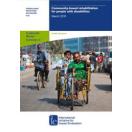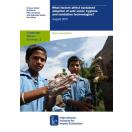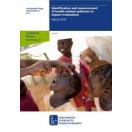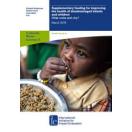
Community-based rehabilitation for people with disabilities
3ie Systematic review summary 4
This report by Lemmi and colleagues is based on a systematic review that looked at the impact of community-based rehabilitation (CBR) on health, education, livelihoods, social inclusion and empowerment. Most of the studies in the review found CBR to be an effective strategy. CBR also improved the clinical outcomes for people living with disabilities, reduced the burden on care givers and improved overall quality of life. Most of the limited evidence currently available is focussed on adults and the elderly living in Asia. Although CBR is intended as a strategy for people with all types of disabilities, the studies mostly focused on a few physical and mental health conditions and did not include sensory impairments.


